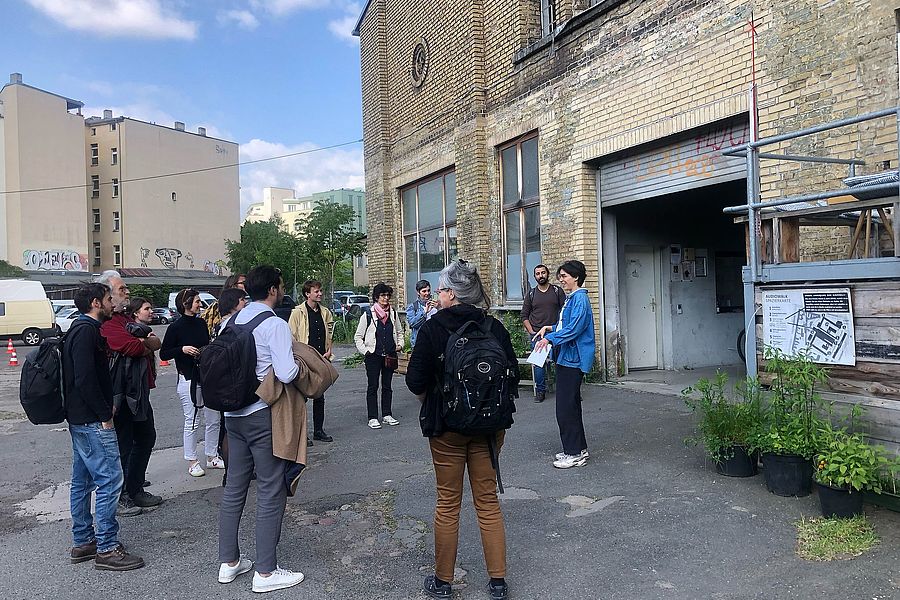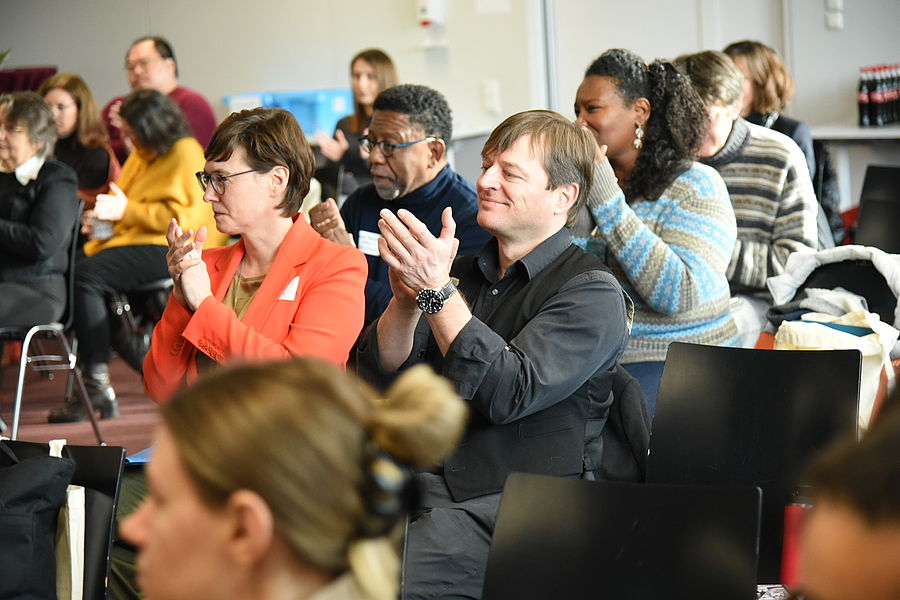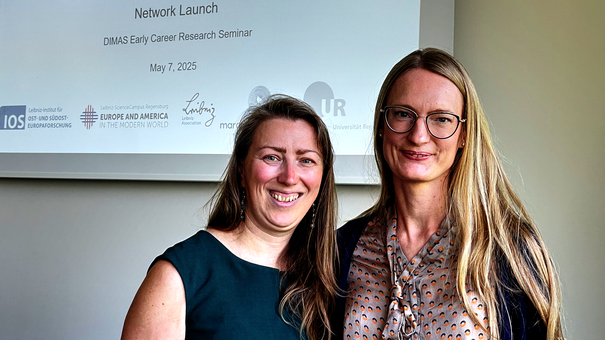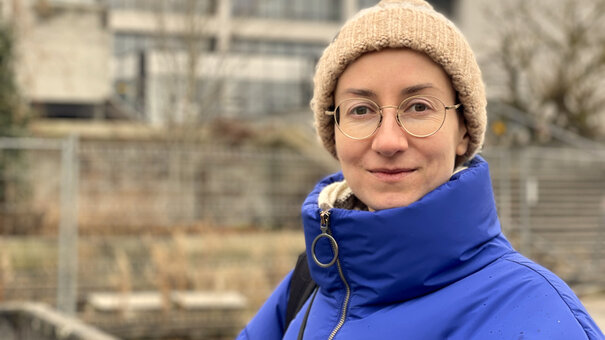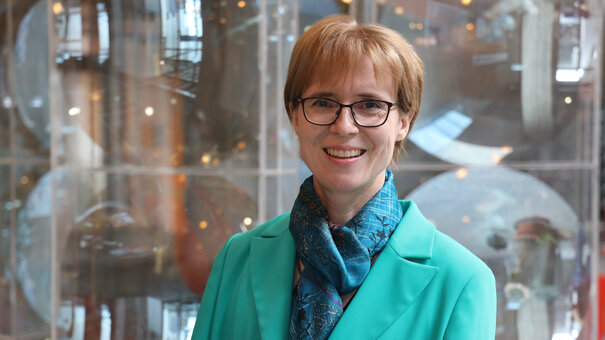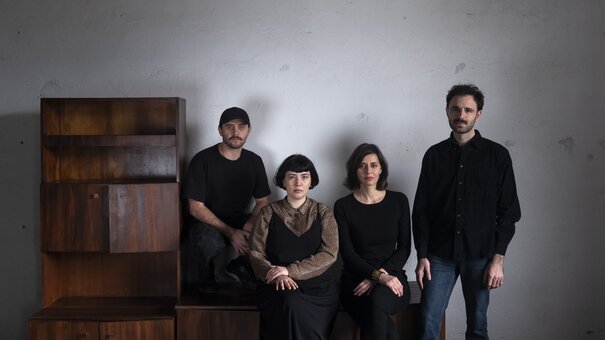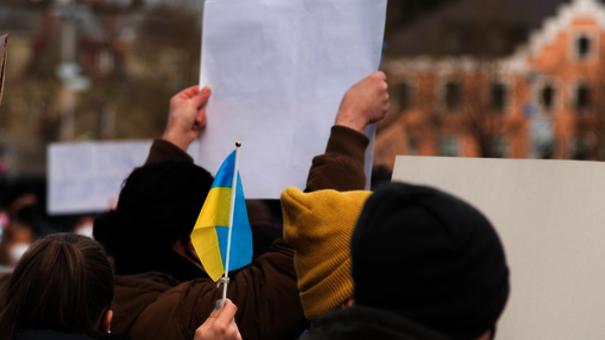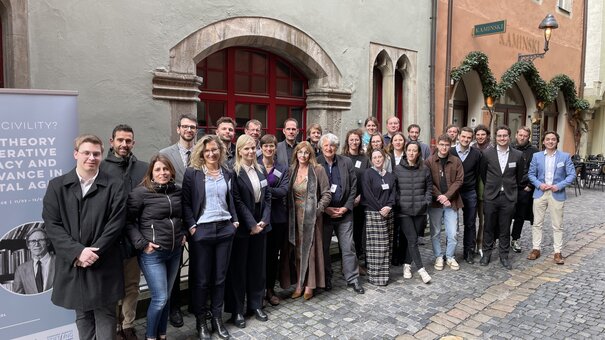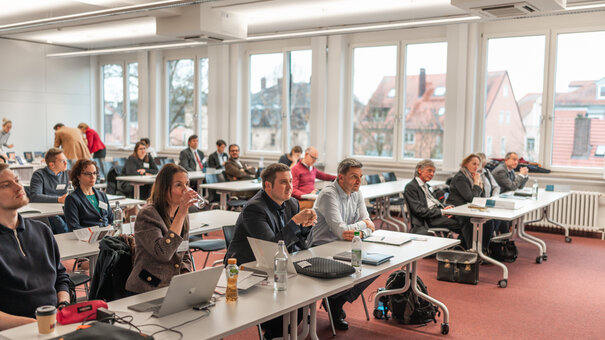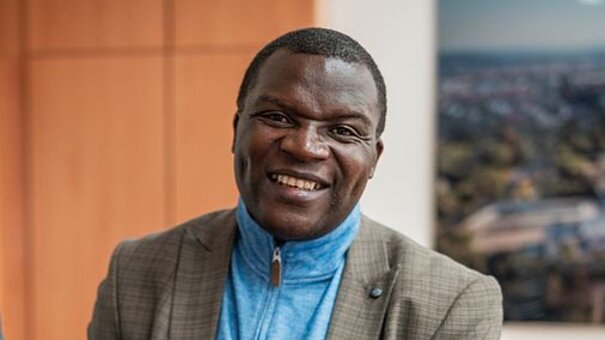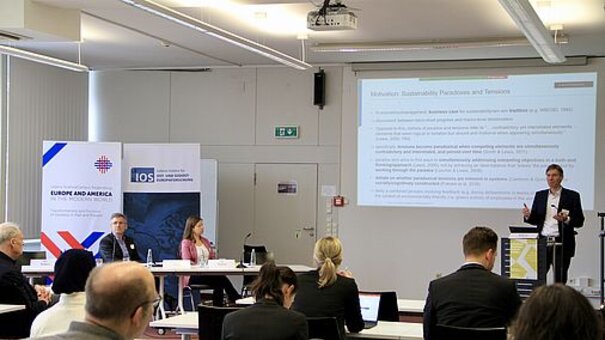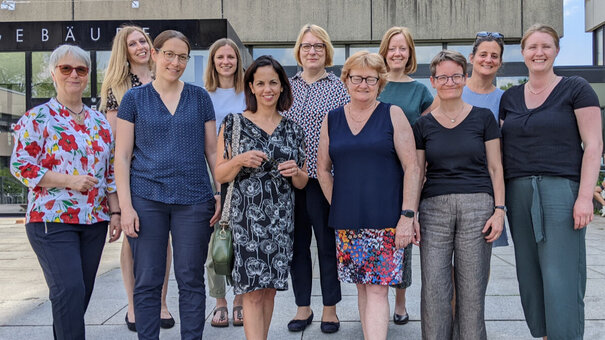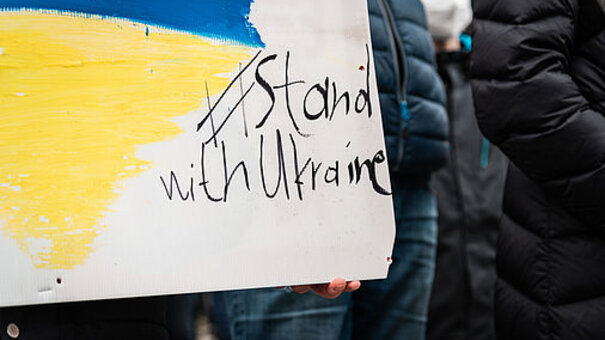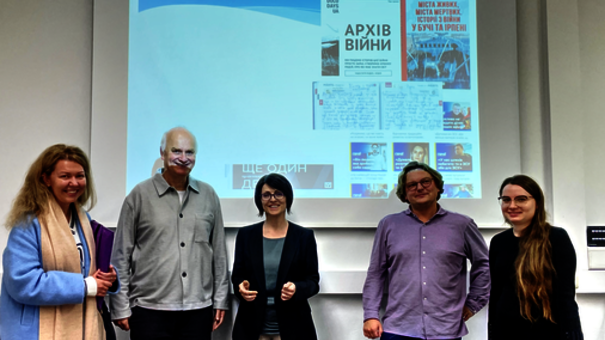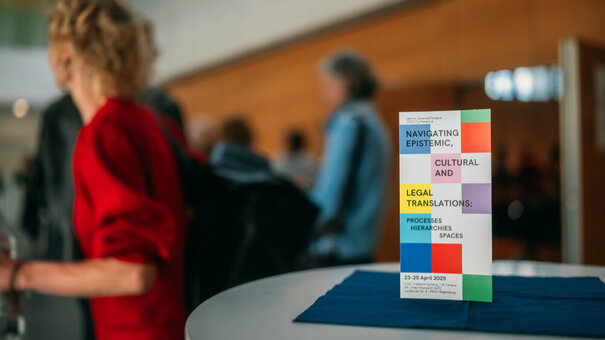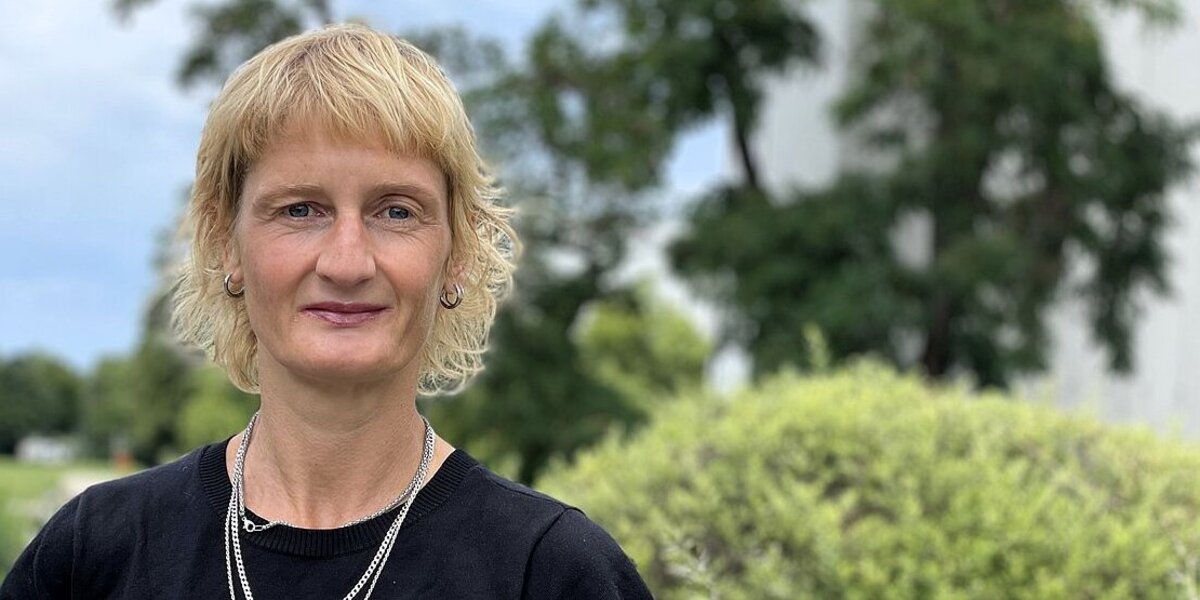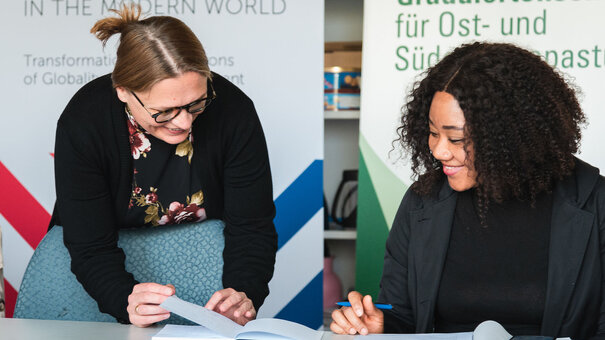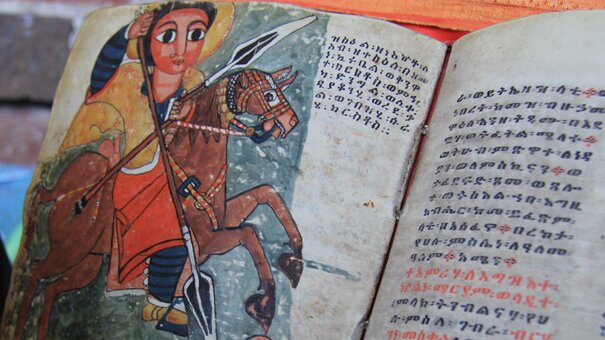 Grafik: Astrid Riege
Grafik: Astrid Riege Ideas, narratives, rituals, goods, rules, borders, people, and spaces are in a constant state of change. Individuals’ and societies’ responses to entangled challenges are highly diverse.
In an increasingly interconnected world that is simultaneously characterized by difference, Regensburg Area Studies (external link, opens in a new window) are generating new research questions by exploring interrelations, entanglements, and cross-references as well as boundaries both within Europe and also between Europe and other regions.
This idea is reflected in UR’s Department for Interdisciplinary and Multiscalar Area Studies – DIMAS.
DIMAS provides a project-focused, flexible, transdisciplinary structure and thereby also supports new intersections with existing disciplines.
Different regions are brought together in a cooperative, dynamic research agenda.
Comparative social and spatial research is one of DIMAS' core topics, which is the focus of the EU-Horizon-Project ‘Fairville. Facing inequalities and democratic challenges through co-production in cities’ (external link, opens in a new window).
DIMAS shapes the collaboration between the department and the collaborating UR Faculties (Law; Catholic Theology; Languages, Literatures, and Cultures (external link, opens in a new window); Philosophy, Art History, History, and Humanities) as well as the
Leibniz Institute for East and Southeast European Studies (IOS) (external link, opens in a new window), one of the largest and longest established research institutions of its kind in Germany.
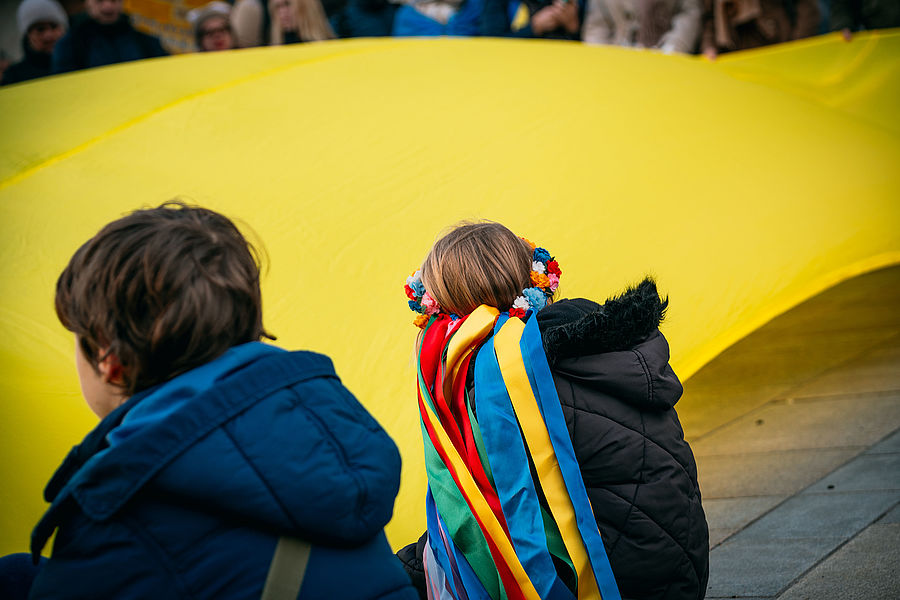 Foto: UR / Julia Dragan
Foto: UR / Julia Dragan Further impetus is provided by the Leibniz ScienceCampus ‘Europe and America in the Modern World’ (external link, opens in a new window) , a joint project of IOS and UR as well as by the Graduate School for East and Southeast European Studies (external link, opens in a new window), founded in 2012.
The establishment of a new Center - Think Space Ukraine (TSU) (external link, opens in a new window) or Denkraum Ukraine (DU) (external link, opens in a new window) – aims to consolidate and advance Regensburg’s diverse expertise on Ukraine's culture, economy, politics, and law. In 2024, the German Academic Exchange Service (DAAD) has pledged substantial support for the project.
In providing a platform for collaborative research projects in area studies, DIMAS seeks to cooperate with the various institutions and centers (external link, opens in a new window) based in Regensburg promoting the University's focus on innovative transnational studies and international degree programmes.
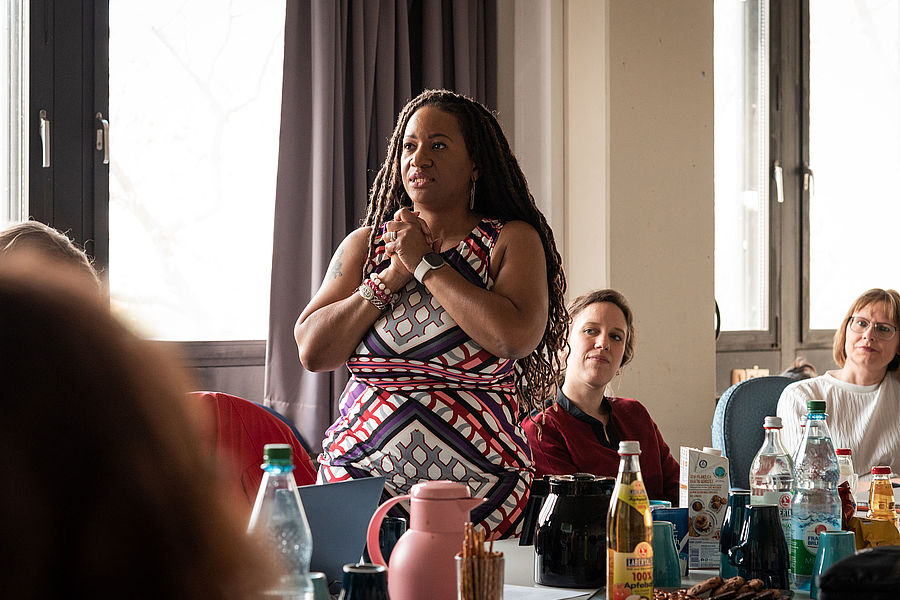 Foto: UR / Julia Dragan
Foto: UR / Julia Dragan 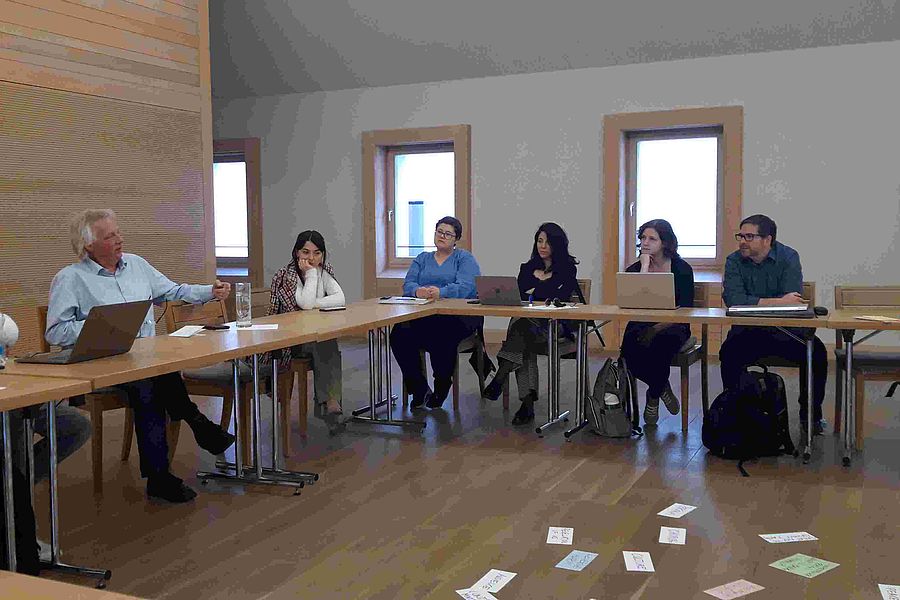 Foto: UR / Charlotte von Schelling
Foto: UR / Charlotte von Schelling Additional interdisciplinary perspectives emerge from the intersection of the diverse theoretical and methodological approaches that contribute specific traits while engaging in exchanges with other perspectives and research groups. Among them is FOR 2770 Beyond Canon_ (external link, opens in a new window) - the first DFG-funded Center for Advanced Studies in the Humanities and Social Sciences at a Faculty of Theology.
International and local scholars gather in the Center to conduct research and discuss so-called heterotopias of religious authority in ancient Christianity. Their objective is to gain insights into religious life beyond ecclesiastical and theological norms as well as into the actual meaning of the biblical canon.
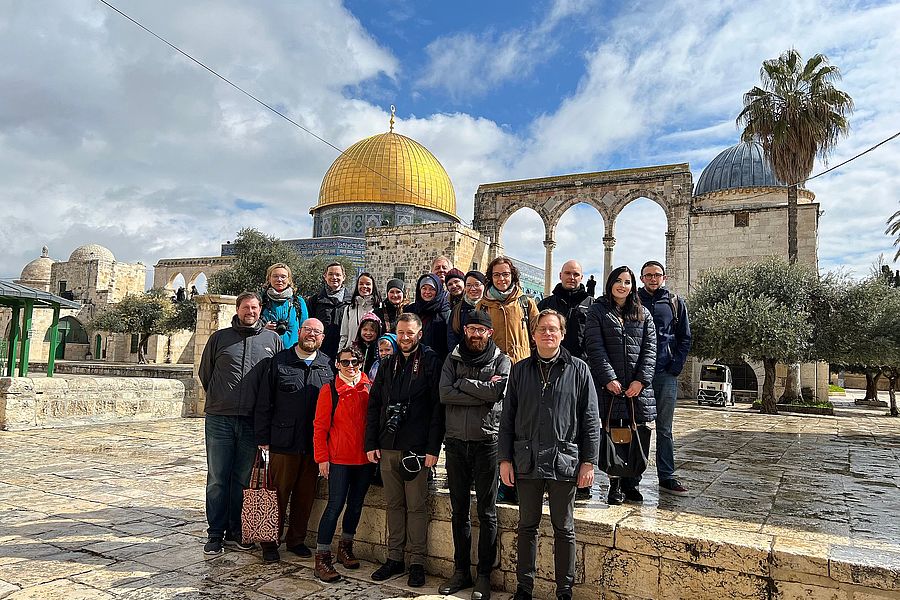 Foto: Kathrin Pindl
Foto: Kathrin Pindl Research on various topics and themes is also facilitated by interdisciplinary centers and institutes, many of which are at UR’s Faculties of Languages, Literatures, and Cultures or Philosophy, Art History, History, and Humanities. Their scholars support both contemporary and historical research, such as the DFG-funded Research Training Group (RTG) 2337 Pre-modern Metropolitanism (external link, opens in a new window)
They focus on the meanings of metropolises, conducting research on the cultural, socio-economic, political, religious, or technological dynamics in pre-modern cities. Their “metropolitanity” is subject to specific historical and cultural conditions that have changed dramatically, particularly under the influence of industrialization and globalization over the last 150 years.
The Center for Commemorative Culture (Zentrum Erinnerungskultur) (external link, opens in a new window) adopts inter- and transdisciplinary perspectives to focus on the forms, conditions, possibilities, and effects of historical commemoration.
The Center aims to promote a close exchange between academic research on commemorative cultures and actors working on public commemoration and history, to inspire experimental approaches, and thereby to critically reflect on and actively co-create social processes of commemoration.
A chronological focal point is commemorative culture relating to National Socialism and the Holocaust. Regarding this topic, the Center closely collaborates with the Flossenbürg Concentration Camp Memorial (external link, opens in a new window).
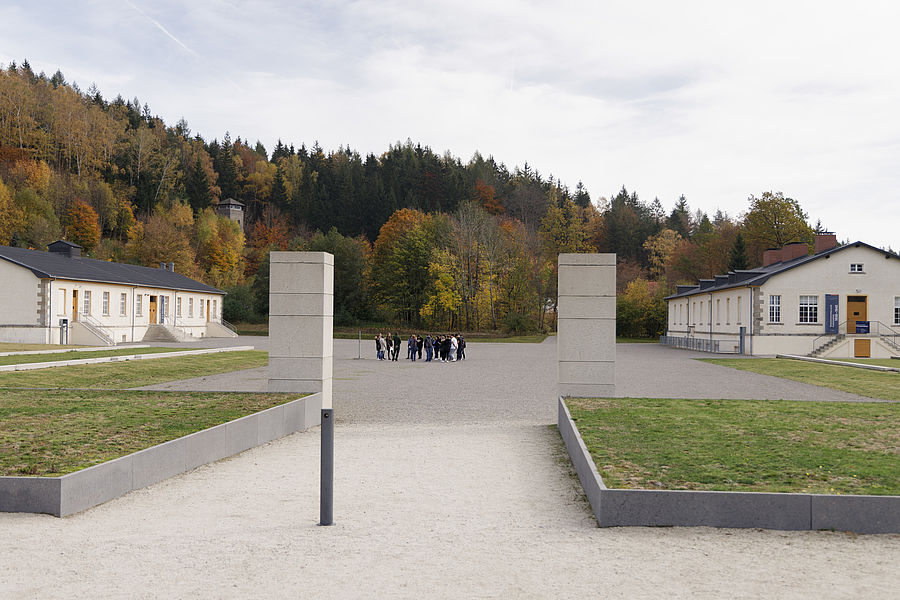 © Flossenbürg Memorial | Photo: Thomas Dashuber
© Flossenbürg Memorial | Photo: Thomas Dashuber #sciencestories
#talktime
#notabene
- LSC: News and Events (external link, opens in a new window)
- LSC: Research Modules (external link, opens in a new window)
- seeFField: Blogging in Different Languages (external link, opens in a new window)
- REAF Lights (external link, opens in a new window)
- IOS: Focus Ukraine (external link, opens in a new window)
- Think Space Ukraine - Denkraum Ukraine (external link, opens in a new window)
- WIN: Post Your Doc (external link, opens in a new window)



